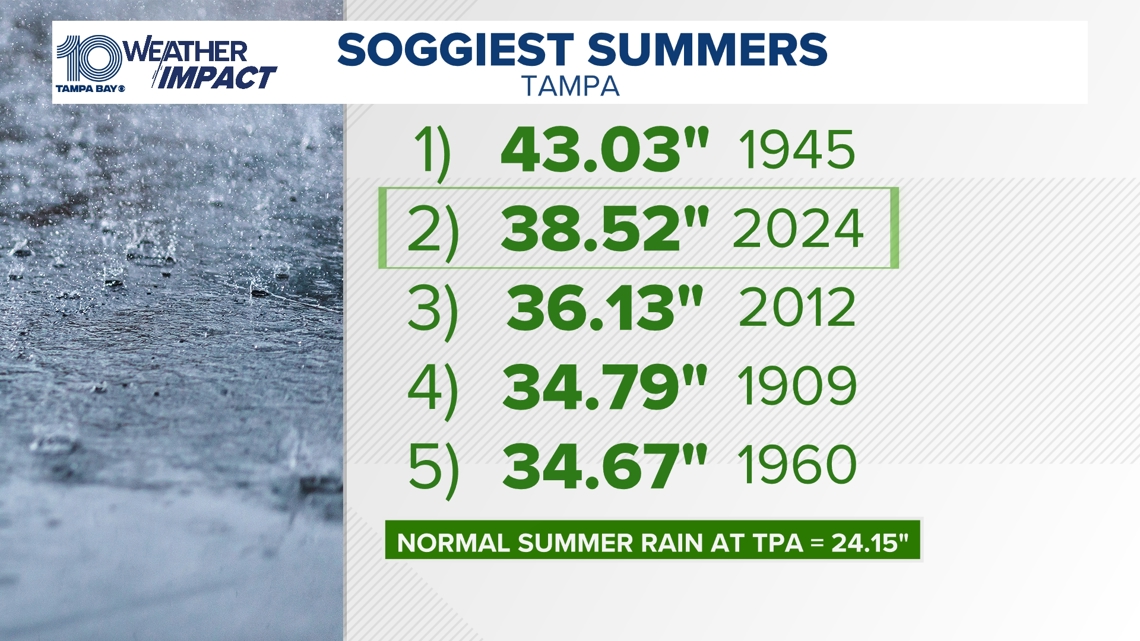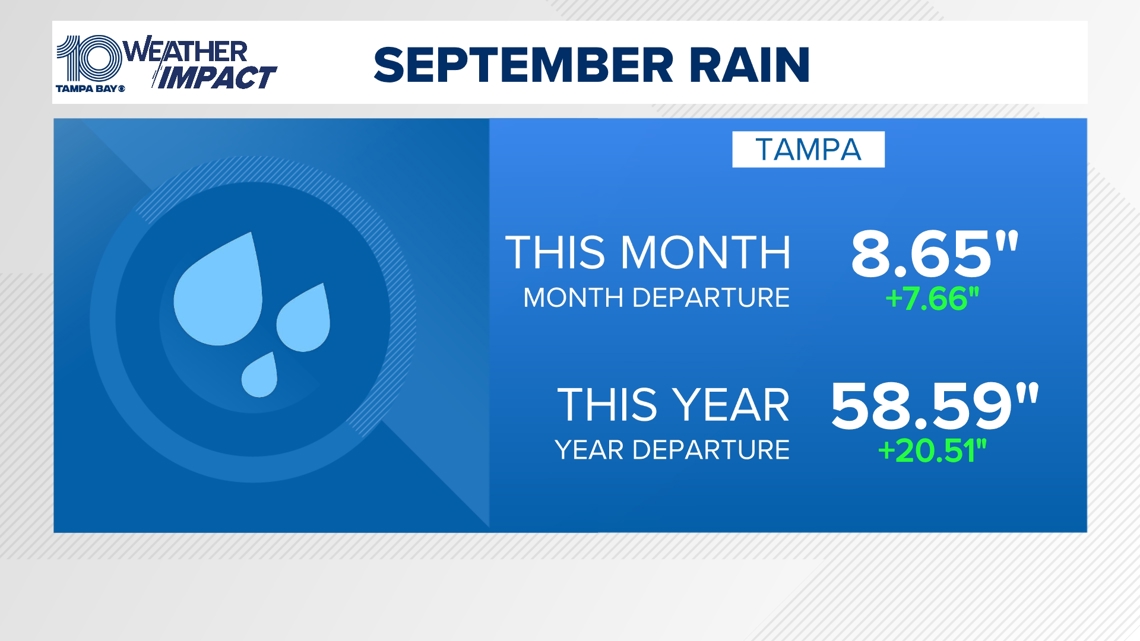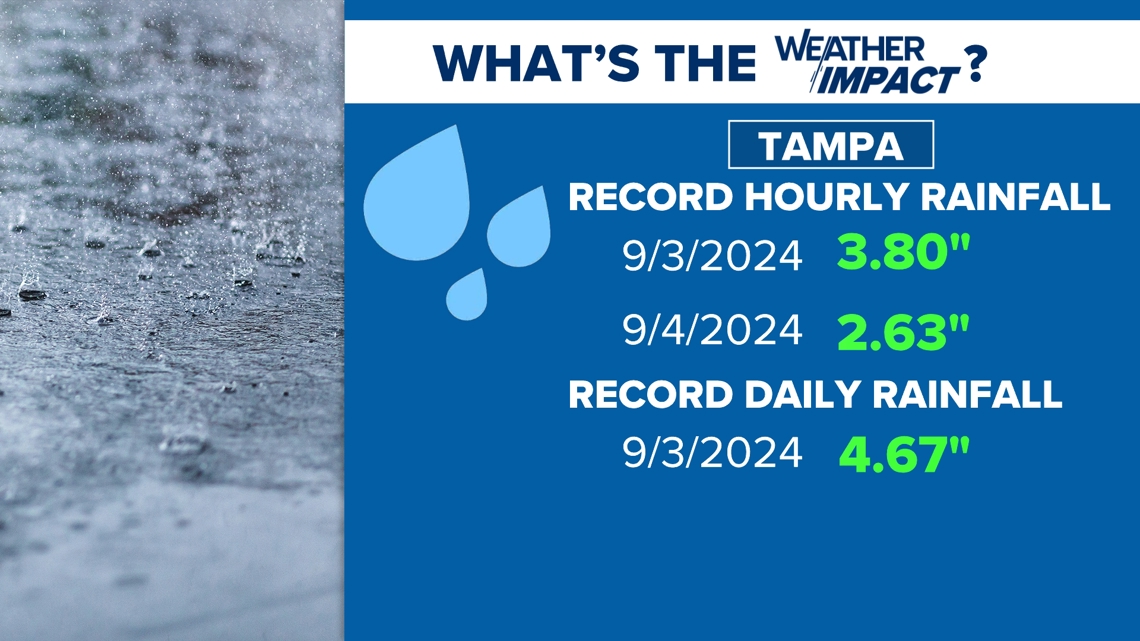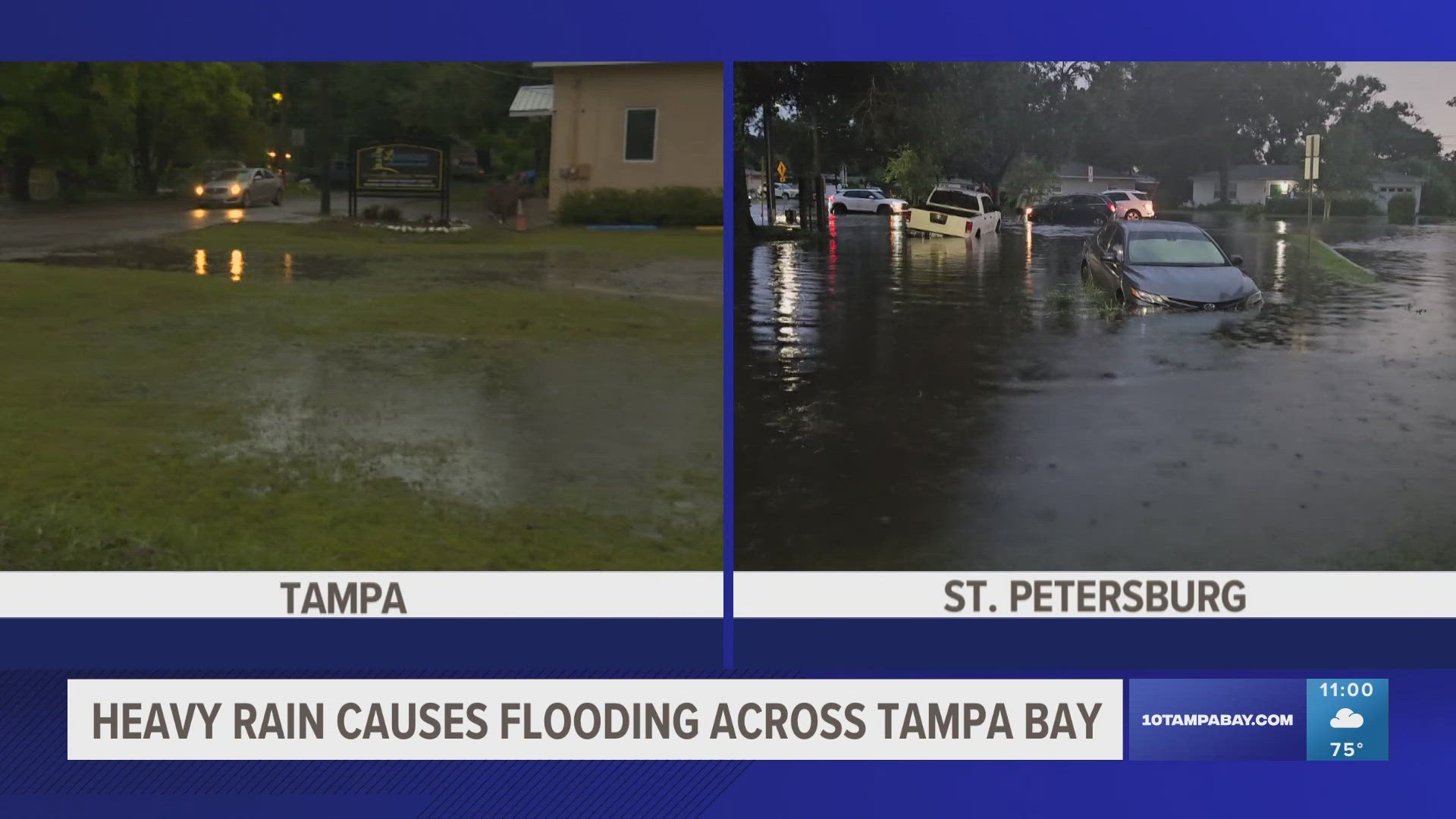TAMPA, Fla. — It's been a record-breaking start to September, with heavy rain leading to flooding concerns as we round out the peak of rainy season.
Tampa Bay's typical rainy season runs from May to October, peaking between July and September.
Hurricane Debby helped bring more rain than normal this summer, with 38.52 inches of rain falling from June 1 to August 31. That makes it the second-wettest summer on record. On average, Tampa nears 24 inches of rain between the three months.


Meteorological fall starts in September and runs through November 30. With the start of the new month and new season, we currently have a surplus of rain in Tampa with 8.65 inches of rain, which is a little more than 7 inches above normal.


Much of this rain collected during our first three days of September with records made for the heaviest one hour rainfall. On Tuesday, Tampa recorded 3.8 inches of rain from 5 to 6 p.m., setting a new hourly rainfall record. The following day, on Wednesday, we managed to hit sixth place for hourly rainfall with a record of 2.63 inches collected between 4 p.m. and 5 p.m.
Also on Tuesday, we had a record max daily rainfall of 4.67 inches, beating the previous record of 4.42 inches in 1985.


Although we are not expecting quite as much rain for the remainder of the week, local waterways that have slowly been receding from Debby continue to fill and overflow during these heavy rainfall events. This has led to several reports of flooding and stranded vehicles across Tampa Bay.
Remember, if you see standing water or flooded roads, turn around. When you drive through flooded areas not only are you putting yourself at risk, you're also pushing water into nearby yards and houses.

